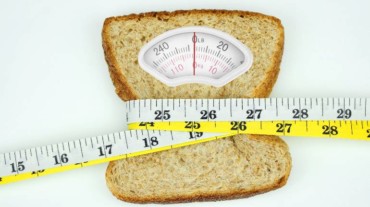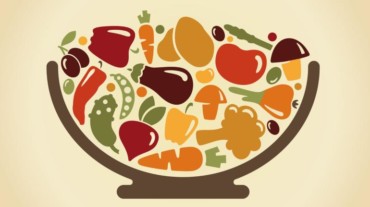
When it comes to the thyroid gland in the body, the consequences of any disturbance in this sacred part of your body as quite extreme. While the excess production of the thyroid hormone (hyperthyroidism) can lead to rapid weight loss; the lack of it (hypothyroidism) can lead to a lot of weight gain.
If you’ve been unable to lose weight, you could be suffering from hypothyroidism and the lack of this hormone in your body could be blamed for it.
“Hypothyroidism means a slower metabolism than that of a person without this condition. Hence the person with hypothyroidism may need to put in more effort in terms of exercise, stress management, and nutrition in order to lose weight. Having said that, the two important factors to consider are consistency and commitment, not the slow metabolism,” says Karishma Chawla, a renowned nutritionist and lifestyle educator.
She goes on to offer these simple but effective diet tips for those suffering from it. Check them out:
1. Choose the right type and amount of carbohydrates
Considering the fact that this gland keeps our body in the right balance, moderation is the key in terms of carbohydrates. Too much or too little can be problematic.

The diet must consist of carbohydrates coming from whole foods rich in fibre such as whole grains, fruits and vegetables. One should also steer clear of processed flours, sugar, and gluten.
2. Eat a diet rich in minerals
The thyroid gland is dependent on iodine and selenium for proper functioning. Deficiency in one or both of these minerals can cause thyroid issues. Iodine is found in sea vegetables like nori, dulse, kombu and seaweed. These can be added to soups, salads, and stews. Selenium is found in brazil nuts, mushrooms, and chia seeds, which must be consumed regularly.
3. Eat more fermented foods
Fermented foods support gut health and gut health supports thyroid health. Hence, one can add a tablespoon or two of sauerkraut or kimchi in their meals each day. Kombucha and kefir are fermented beverages loaded with healthy bacteria which supports gut health which in turn supports thyroid health.
4. Load up on cruciferous vegetables
Cruciferous veggies like broccoli, bok choy, cauliflower, cabbage, collard greens, and kale, when consumed cooked can actually help improve the thyroid function.
5. Don’t run away from fats
Consume a good amount of healthy fats such as omega-3 fat which is known to help the case of autoimmune conditions such as thyroid imbalance.
Select Topics of your interest and let us customize your feed.
PERSONALISE NOW
Add walnuts, chia seeds, flax seeds, and fatty fish like salmon, sardines, and mackerel to your diet.
6. Up your protein intake
Consume the right quality of protein from eggs, lean chicken, fish, legumes, nuts, and seeds. You may want to stay away from dairy products because the molecular structure of proteins found in gluten and dairy resembles that of the thyroid hormone.
7. Eat metabolism-boosting foods
Thermogenic foods such as fibre coming from veg smoothies, salads, vegetables, and protein sources help to boost metabolism along with aiding weight loss, especially in case of a thyroid issue.
8. Get enough vitamin D
Vitamin D helps protect the body from autoimmune diseases. It’s found in some fatty fish including mackerel, salmon, and tuna. Supplementing D3 may also be beneficial.
9. Add zinc-sources to your diet
Zinc is required for maintaining adequate levels of thyroid hormone in the body. It can be found in beef, shrimp, kidney beans, spinach, and flax seeds.

So, making just a few simple changes to your diet can aid weight loss if you’re someone suffering from thyroid imbalance but the important part is consistency.